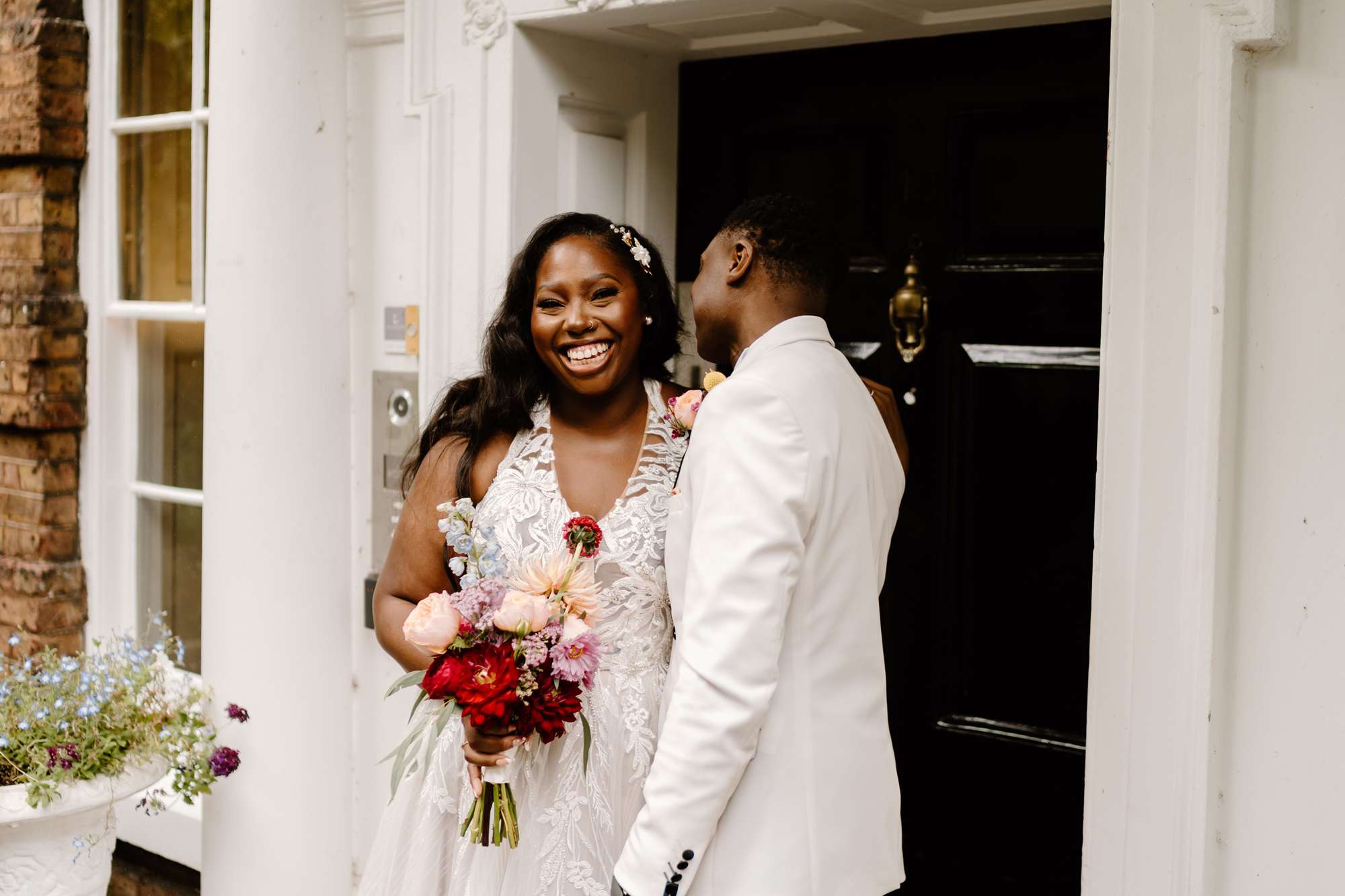
Getting married is such a beautiful thing. We have fallen in love and chosen someone to be our forever person. It’s supposed to be our ‘happily ever after’ moment.
Yet leading up to it, many things can stand in the way of us feeling truly happy in our happily ever after. According to a 2023 survey by Zola, 59% of couples describe wedding planning as overwhelming. As a therapist, I often see how this overwhelm and anxiety can show up for us as physical symptoms like headaches, change in appetite, hair loss, skin breakouts and reduced sex drive.
By the time you read this, I will have had my own wedding. And I can confirm that I have experienced all (and more) of these symptoms and feelings myself. My anxiety has shown itself through tears, headaches, high blood pressure readings, sleepless nights… you name it. As a trained psychotherapist and mental health author, I’m all about normalising those difficult, yucky feelings that no one wants to talk about. So, let’s have a real talk about the emotional experience of planning a wedding.
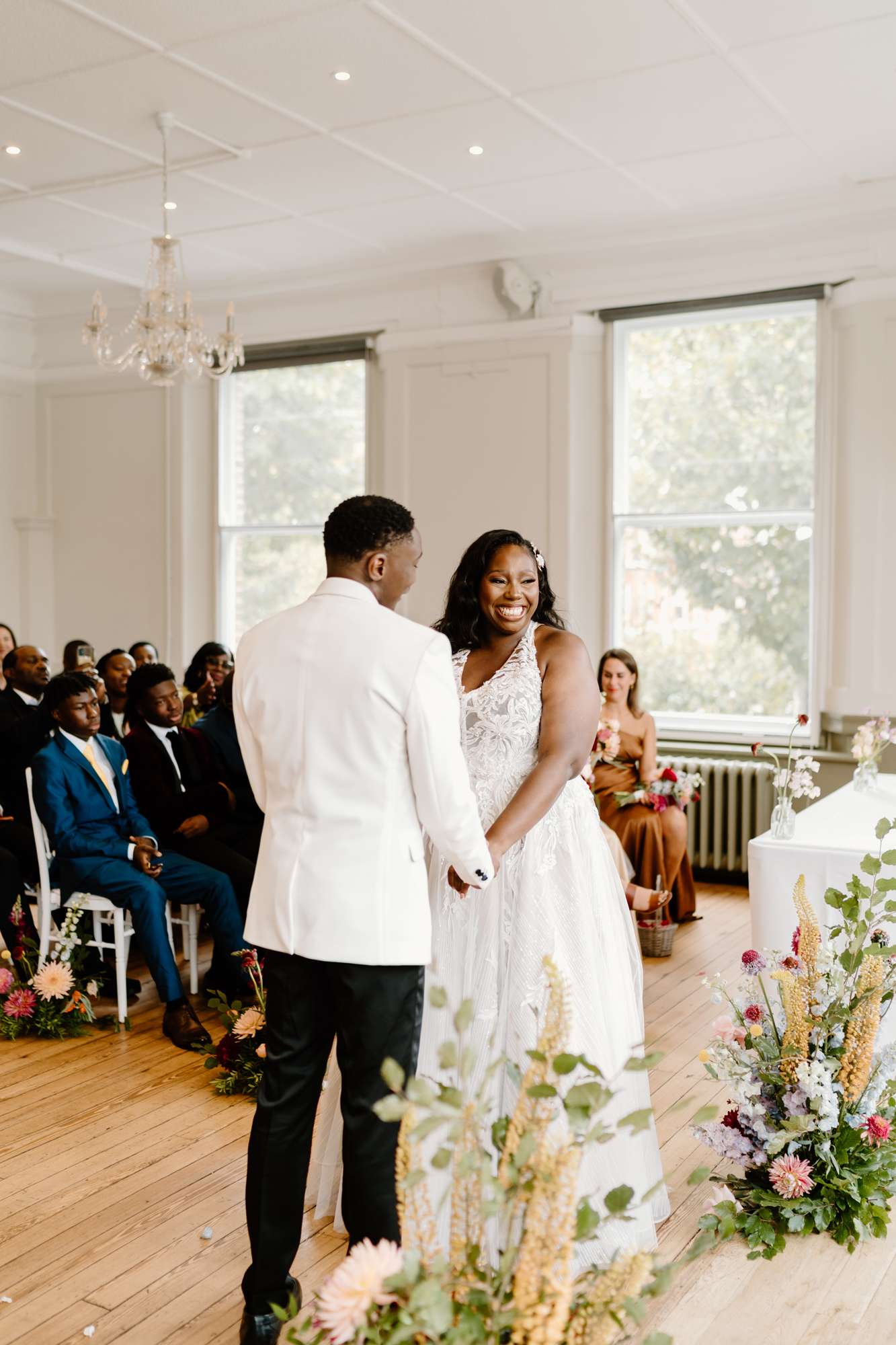
Expectation: Your wedding day has to be perfect
Reality: Perfectionism leads to anxiety
It’s almost impossible to read a blog or article about weddings without also seeing the words “perfect day” or “dream wedding”. There is such pressure from the wedding industry for your special day to also be the most perfect day of your life. We are expected to fine-comb through every detail, adhering to a never-ending checklist of wedding expectations.
But the higher the expectations you have on yourself and planning the perfect day, the higher your anxiety will be. Perfectionism calls for your inner critic, the most critical part of our thoughts, to take control and suck the fun out of the process and purpose of what you’re doing. If you’re feeling dread about your wedding, it’s a sign that perfectionism has gotten in the way of doing it your way.
A perfect wedding day is ultimately impossible. Even if you have every detail planned and in place, full control is never within your grasp. You can’t puppeteer your guests to behave the way you want them to, or safeguard practical hiccups from happening either… and absolutely none of us can control the weather!
Rather than focussing on your wedding day as an outcome that you need to perfect, focus on enjoying the process of getting there. The days, weeks and months leading up to you marrying your person are just as important as the day itself. As for the day itself, something is always bound to go wrong… so let it. That mishap might turn out to be a quirky surprise that will make a good wedding story in the end.
Therapist’s Tip: Research shows the couples who meditate together, stay together. Have a dyadic meditation date, where you take some time to do mindfulness and meditation as a couple. Doing this helps ease anxiety, but also increases intimacy and being emotionally open with each other.
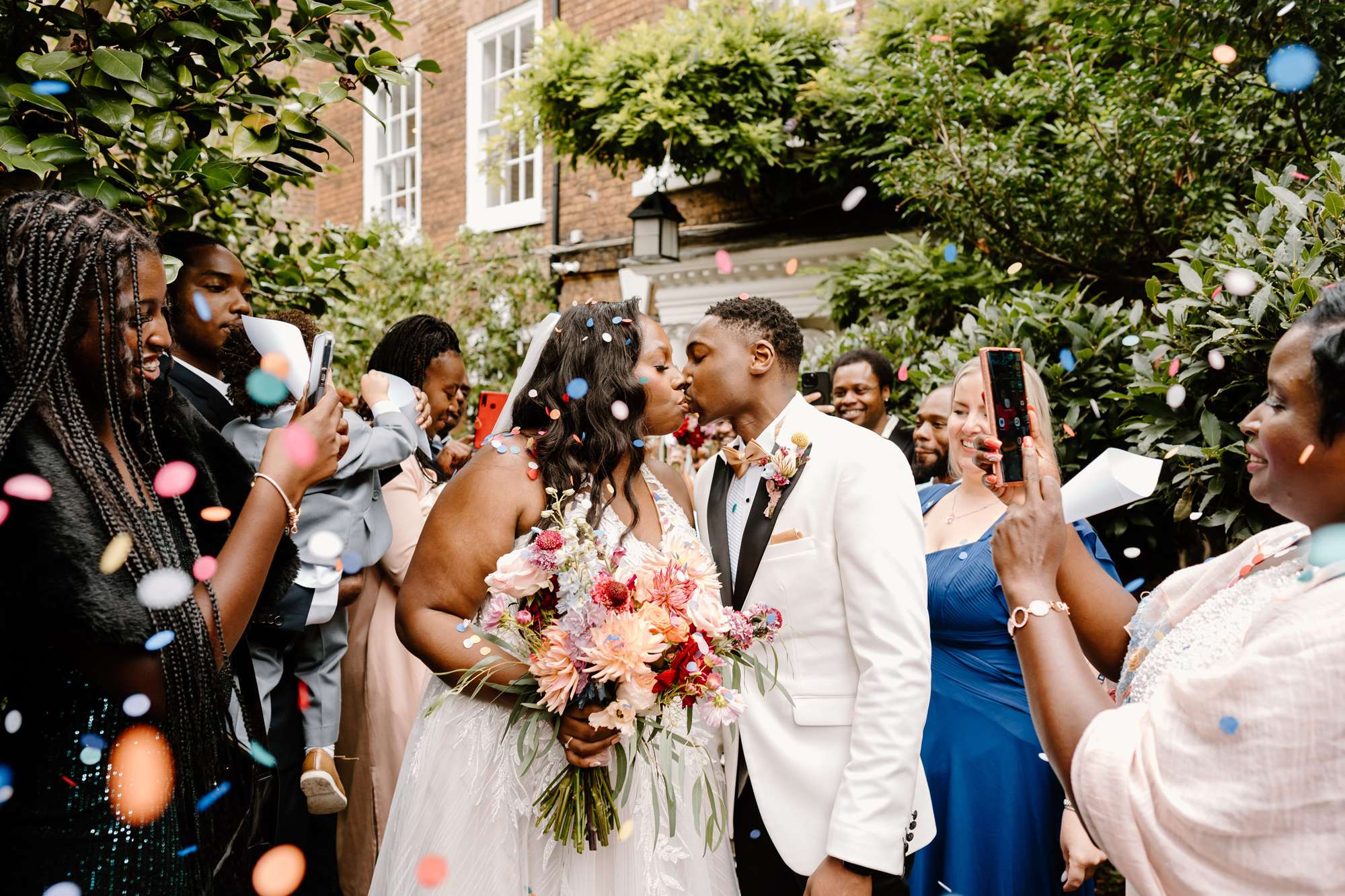
Expectation: You’re instantly ready to be married
Reality: You have to grieve old parts of yourself
Weddings are such a momentous time in our life, so there’s an emotional process that comes with it.
Firstly, you have to go through a bit of a grieving process. You might notice yourself slowly saying goodbye to the parts of you that won’t exist now you’re engaged and edging towards married life. Your relationship status is changing and you may have to say goodbye to parts of yourself linked to dating and being single. This natural moment of grieving means it’s more than normal to feel sad, confused or to have cold feet in the countdown to making your lifetime commitment.
On top of that, you may feel a loss of identity because of how people treat you since getting engaged. Our friends and family can be so excited about the wedding that it’s all they ever talk to us about. They may not give the same time and energy that they used to in asking about your feelings, your job or the other parts of your personal life. This can bring a whirlwind of difficult emotions like resentment, anger or feeling forgotten. It can feel like our identity is being erased as we are suddenly seen as a spouse, instead of the complex, unique individual that we’ve been spending our whole lives trying to curate.
Another way that we might lose ourselves is through the fear of being branded as a ‘Bridezilla’. This awful word describes when a bride has become obsessive or intolerably demanding about their wedding. Let’s be honest, it’s a microaggression against women and femmes, judging them for being assertive about their needs and wants for their own wedding. But it has become a word that many brides fear, leading them to silence their needs and lose their own voice whilst planning their special day.
Therapist’s Tip: Don’t be afraid to set boundaries with yourself and others about wedding talk. Ensure that conversations with your nearest and dearest start with actually checking in with each other emotionally before wedding practicalities come into play. Allow space for you to be separate from your wedding identity.
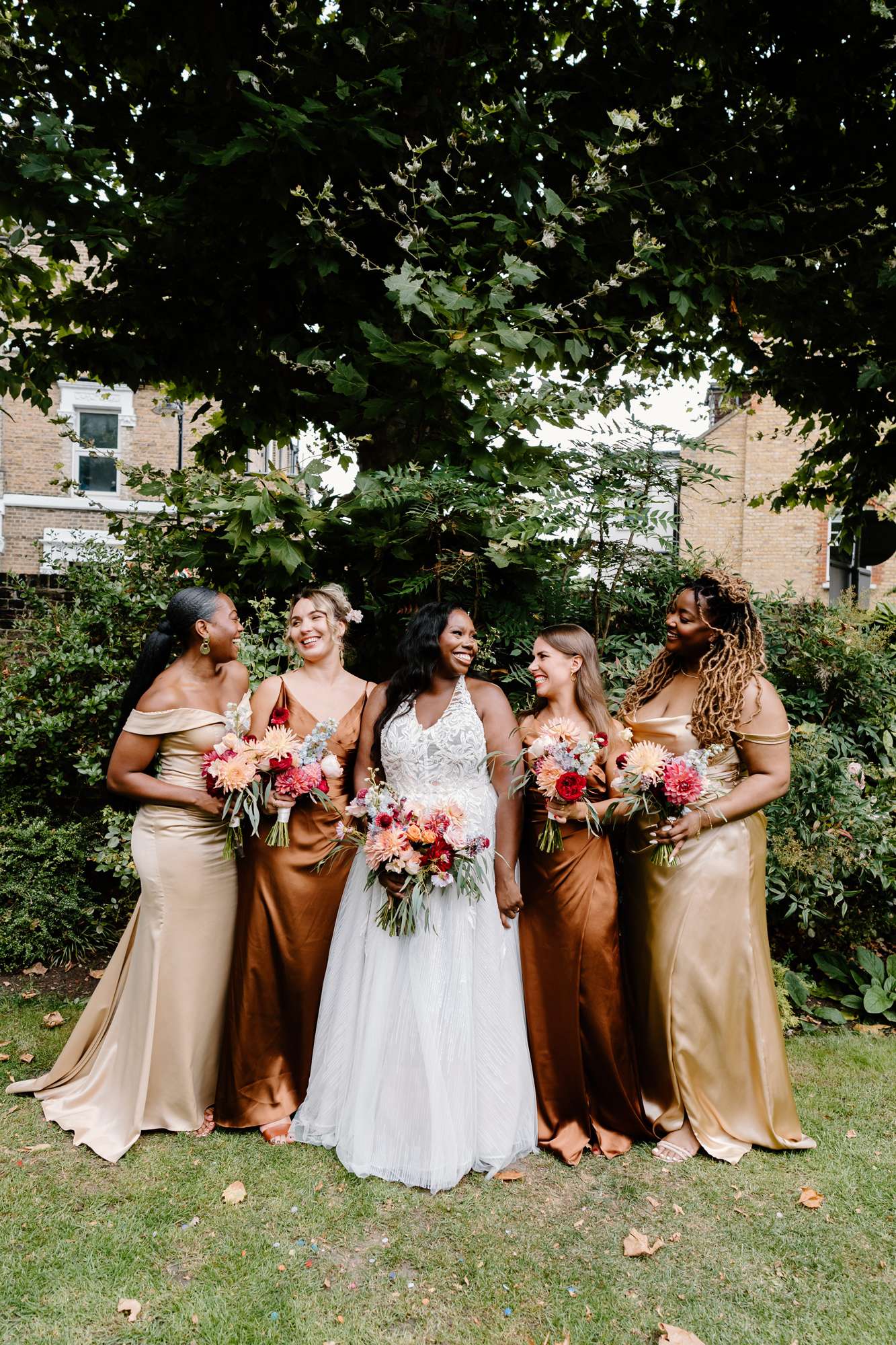
Expectation: There will be lots of people to support you
Reality: You may have to manage other people’s feelings
If there’s one thing that the film Bridesmaids teaches us, it’s that weddings are an emotional process for everyone in your community. Do you remember that scene where Annie laughs hysterically when her friend announces that she’s getting married? Even though she’s happy for her best friend, it’s also normal for her to have fears about this new life stage and how it will impact her and their friendship.
The truth is, weddings can be triggering for the best of us. We might have friends or relatives who are going through break-ups, bereavement and other life challenges, whilst also navigating their own thoughts and feelings that are triggered around marriage, weddings and relationships. Left untamed and unconscious, these feelings can come out as uncomfortable projections, unrealistic expectations and the pushing of boundaries coming your way. This leaves us not only trying to navigate our own feelings about getting married, but also managing the many feelings of other people too.
This can be really bloody disappointing. This might be the time that you need your loved ones the most, but they might not be able to show up in the way that you need them to. But it’s important to remember that this doesn’t mean that they don’t love you. Whilst they do want to celebrate in your joy, they may need to approach it at their own pace, not yours.
Therapist’s Tip: Provide a listening ear for other people’s personal process if you have the capacity. But also, gently name your boundaries because it’s not your responsibility to carry the projections that don’t belong to you.
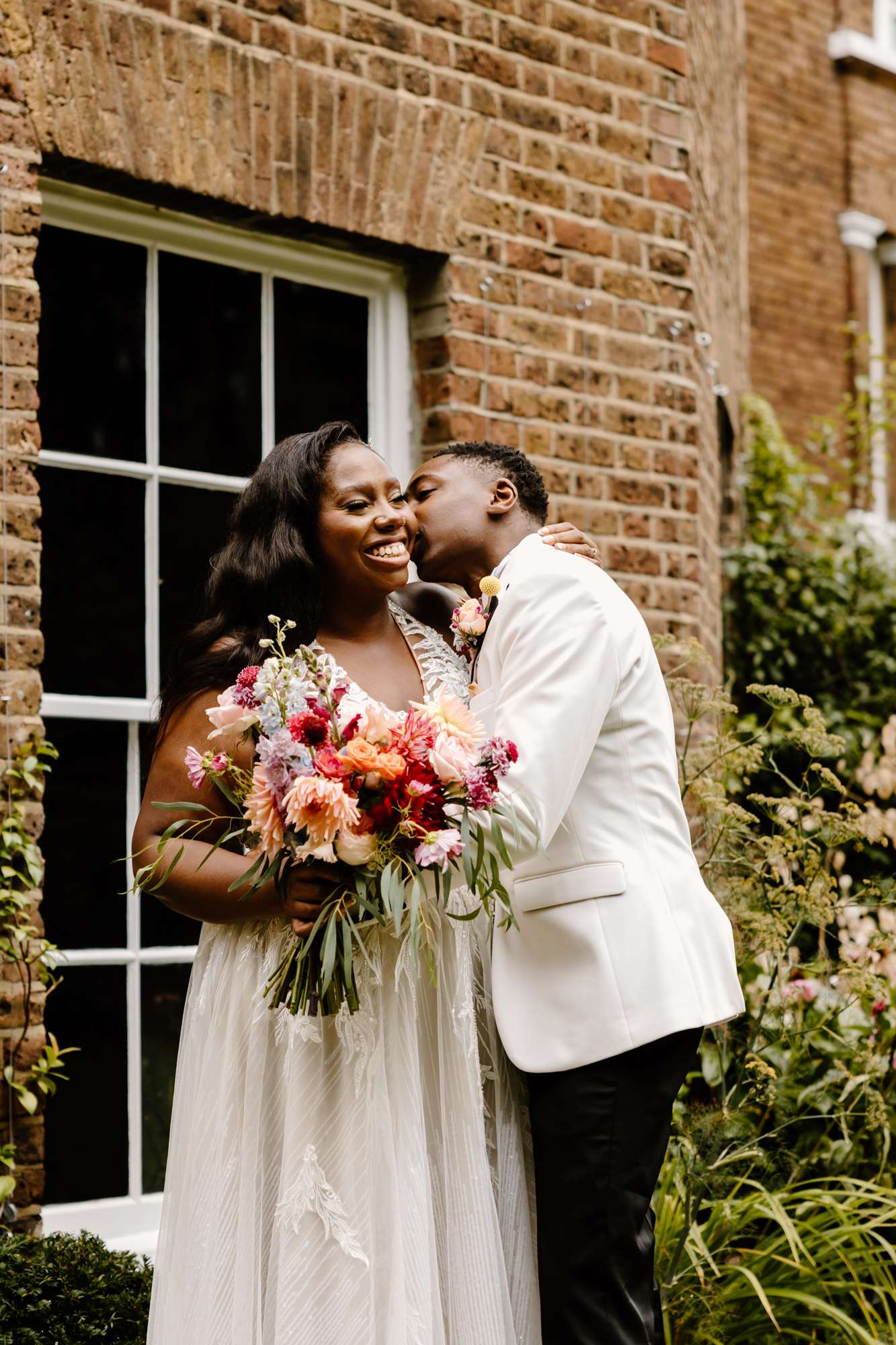
All in all, it’s okay to feel the yucky emotions. As much as your wedding is an exciting time of your life, the good feelings are also going to come with the more complicated ones too. Give those feelings a chance to land, so you don’t have to carry them with you down the aisle.
About Tasha Bailey
Tasha is an author, psychotherapist, speaker and award-winning mental health content creator. Her Instagram platform @RealTalk.Therapist centres around mental health, self-love and healing in a fun, informative way. Tasha’s debut book Real Talk: Therapy lessons in Healing & Self-Love, is full of wisdom and exercises to help people along their journey of self-love and healing from the past.
This article originally appeared in issue 52 of Rock n Roll Bride magazine. You can purchase the latest copy here, or why not subscribe to never miss an issue?
Suppliers
- Photography: Leesha Williams Photography
